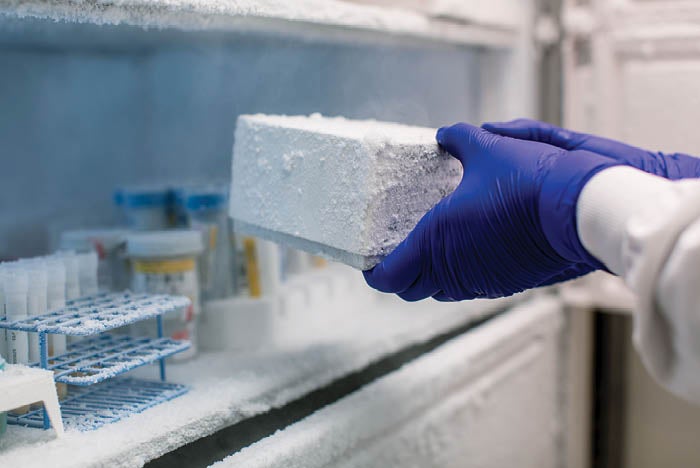Ultracold freezers help save energy

The clinic replaced 300 ultracold lab freezers.
Image courtesy of Mayo Clinic
Mayo Clinic in Rochester, Minn., has implemented a plan to replace more than 1,000 ultracold lab freezers with energy-efficient models that will reduce energy use and incur long-term savings.
The new energy-efficient freezers are predicted to reduce energy use by 60% and save the institution more than $6 million over 10 years.
“Mayo Clinic is committed to responsible environmental protection practices to benefit the health of our patients, staff and communities,” says Amanda Holloway, director in the office of sustainability at Mayo Clinic.
Mayo Clinic’s existing ultracold freezers, some over 40 years old, play key roles in Mayo Clinic’s work. Any failure could result in the loss of stored specimens and decades of research. Every year they use as much energy as 1,000 homes and have high capital and maintenance costs.
The supply chain staff reviewed standardization and energy efficiencies in ultracold freezers, prompting development of a team of relevant stakeholders to engage with vendors and manufacturers to assess different products. The team conducted side-by-side trials to help select potential models for the replacement freezers.
Systemwide standardization was not possible, though. As many as 20% of the existing freezers are in locations that could not accommodate the new models’ dimensions, and voltage requirements vary by occasion, too.
Practice Greenhealth’s cost of ownership calculator was used to compare the energy-efficient ultracold lab freezers to traditional models. The calculation compared purchase price, battery costs and energy usage. Even though the energy-efficient models cost more, they provide the most cost-effective ownership costs over a 10-year period, offsetting the initial purchase price.
As of press time, 300 of Mayo Clinic’s freezers have been replaced, and the remaining freezers will be replaced within two years. The new freezers are expected to last at least 10 years but have the potential to last as long as 30.
“The project to standardize purchasing ultracold freezers is a win for the environment, our communities and the bottom line,” Holloway says.




